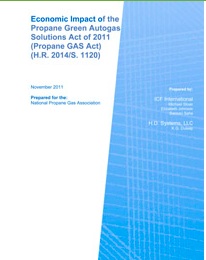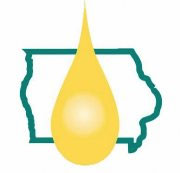![]() Propane supplies are in good shape going into the winter, according to Randy Miller, GROWMARK director of propane operations.
Propane supplies are in good shape going into the winter, according to Randy Miller, GROWMARK director of propane operations.
Regarding total inventories, Randy says 60 million barrels is the total to shoot for to feel comfortable going into the winter. “And we just did get to 60 million,” he said recently. “We’ve had some pretty good inventory increases the last few weeks.”
He says that Midwest stocks are pretty good, but stocks overall are behind last year and the five year average. “Nothing to feel short about but we are behind some nine percent compared to a year ago,” he said. “Most of that is on the Gulf Coast where we’ve seen a lot of propane exports.”
Propane exports from the U.S. are up this year, although they have dropped off a bit in the last month or so. “But still we are seeing tremendous exports compared to what we’ve ever seen before in history,” Miller said.
GROWMARK is a leading provider of a full range of energy products and services, including a complete line of quality lubricants, fuel and fuel additives, and dependable heating and drying with GROWMARK propane.
Listen to an interview with Randy Miller about propane supplies: Randy Miller Interview




 The 2011 edition of the
The 2011 edition of the  “This is a deeply disturbing picture that the IEA has painted for the world,” said Bliss Baker, spokesperson for the
“This is a deeply disturbing picture that the IEA has painted for the world,” said Bliss Baker, spokesperson for the  As presidential candidate Rick Perry returned to Iowa today, the
As presidential candidate Rick Perry returned to Iowa today, the  “How in the world does Governor Perry justify 20 more years of tax subsidies for oil companies?” asked IRFA President Walt Wendland. “The renewable tax credits cease at the end of this year. But despite that some of the oil subsidies go back 100 years, now we’re told that Perry wants to give oil companies another 20 years of subsidies. Given this extreme position, Perry’s talk about not picking winners and losers and having a level playing field is simply hollow rhetoric.”
“How in the world does Governor Perry justify 20 more years of tax subsidies for oil companies?” asked IRFA President Walt Wendland. “The renewable tax credits cease at the end of this year. But despite that some of the oil subsidies go back 100 years, now we’re told that Perry wants to give oil companies another 20 years of subsidies. Given this extreme position, Perry’s talk about not picking winners and losers and having a level playing field is simply hollow rhetoric.”

 Starting this week, Alaska Airlines began 75 commercial passenger flights in the United States powered by biofuel made from used cooking oil.
Starting this week, Alaska Airlines began 75 commercial passenger flights in the United States powered by biofuel made from used cooking oil. Some 100 farmers are waiting for word on the status of the Biomass Crop Assistance Program (BCAP) in the 2012 federal budget before delivering the bales to POET’s 22-acre biomass storage site in Emmetsburg, where the commercial cellulosic ethanol biorefinery is being constructed.
Some 100 farmers are waiting for word on the status of the Biomass Crop Assistance Program (BCAP) in the 2012 federal budget before delivering the bales to POET’s 22-acre biomass storage site in Emmetsburg, where the commercial cellulosic ethanol biorefinery is being constructed. The Nebraska Ethanol Industry Coalition (NEIC) will be heading up the statewide project with partners including the
The Nebraska Ethanol Industry Coalition (NEIC) will be heading up the statewide project with partners including the